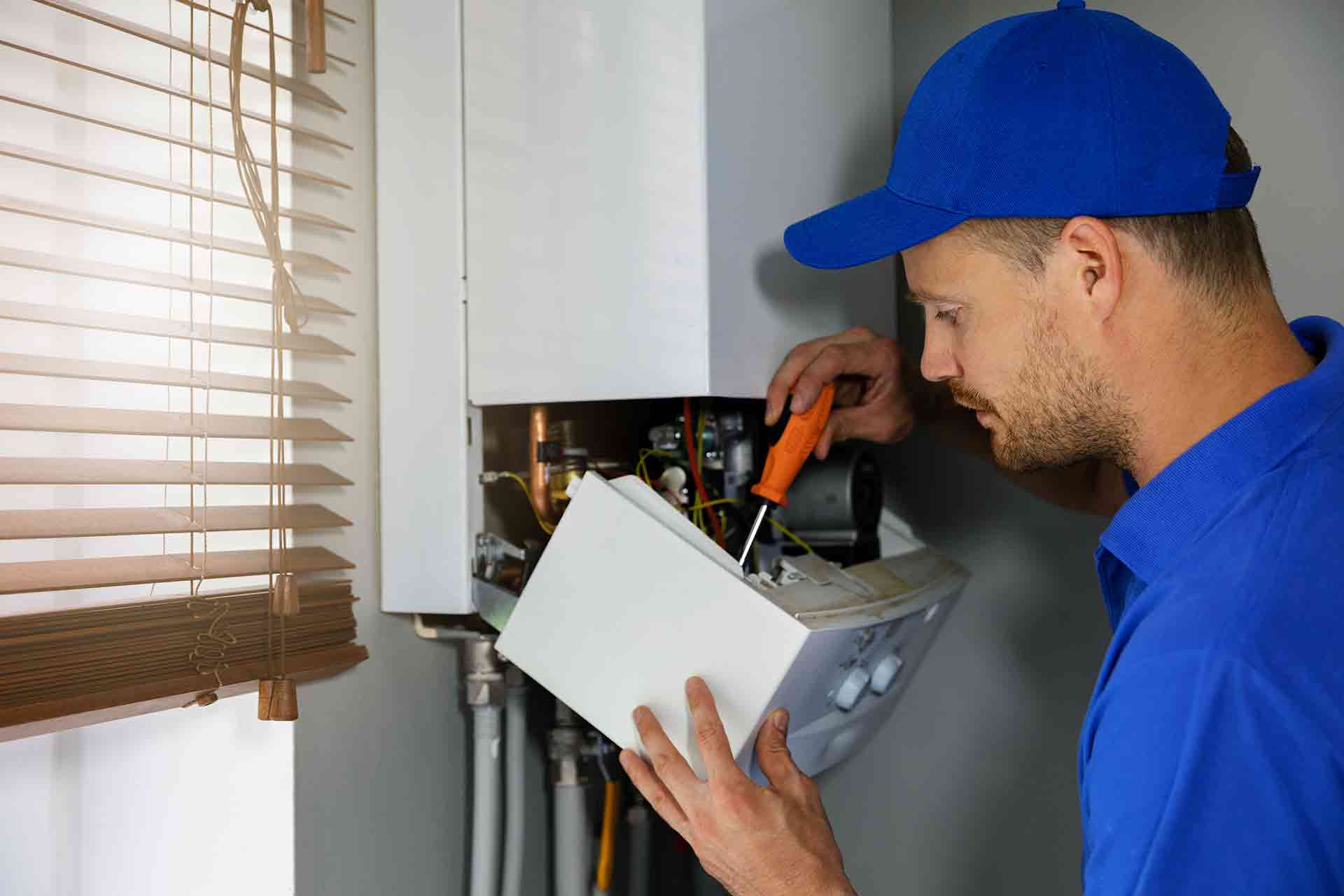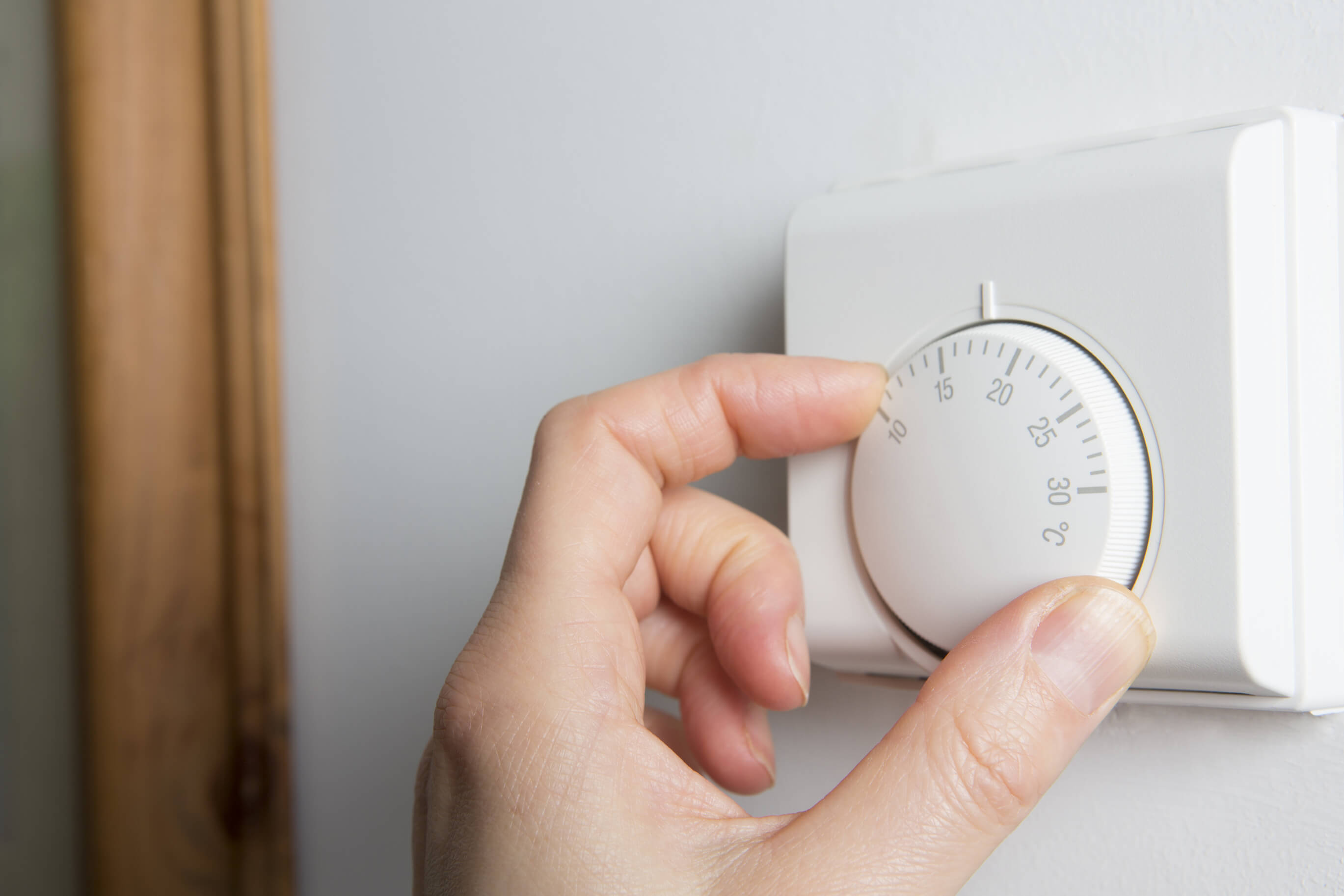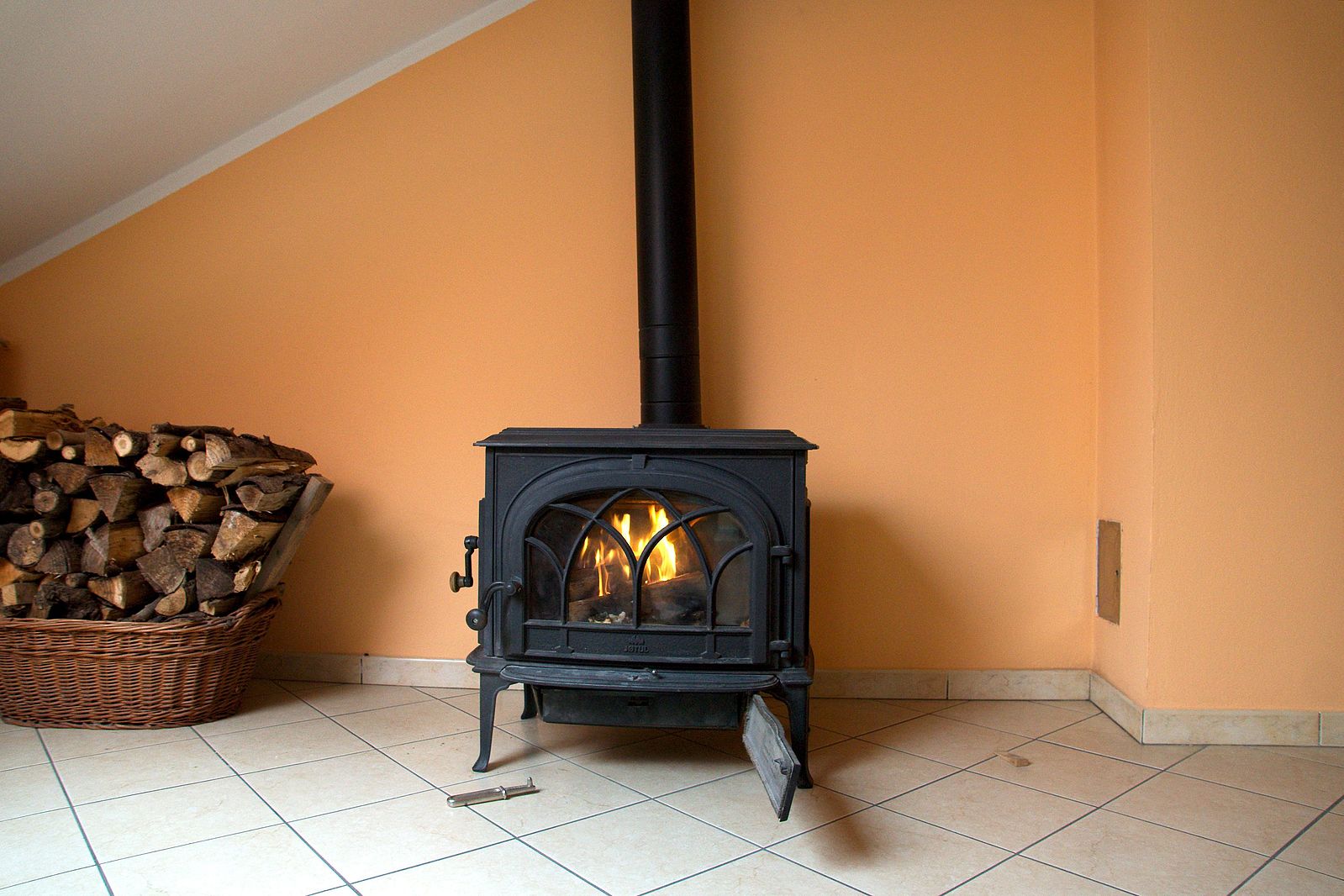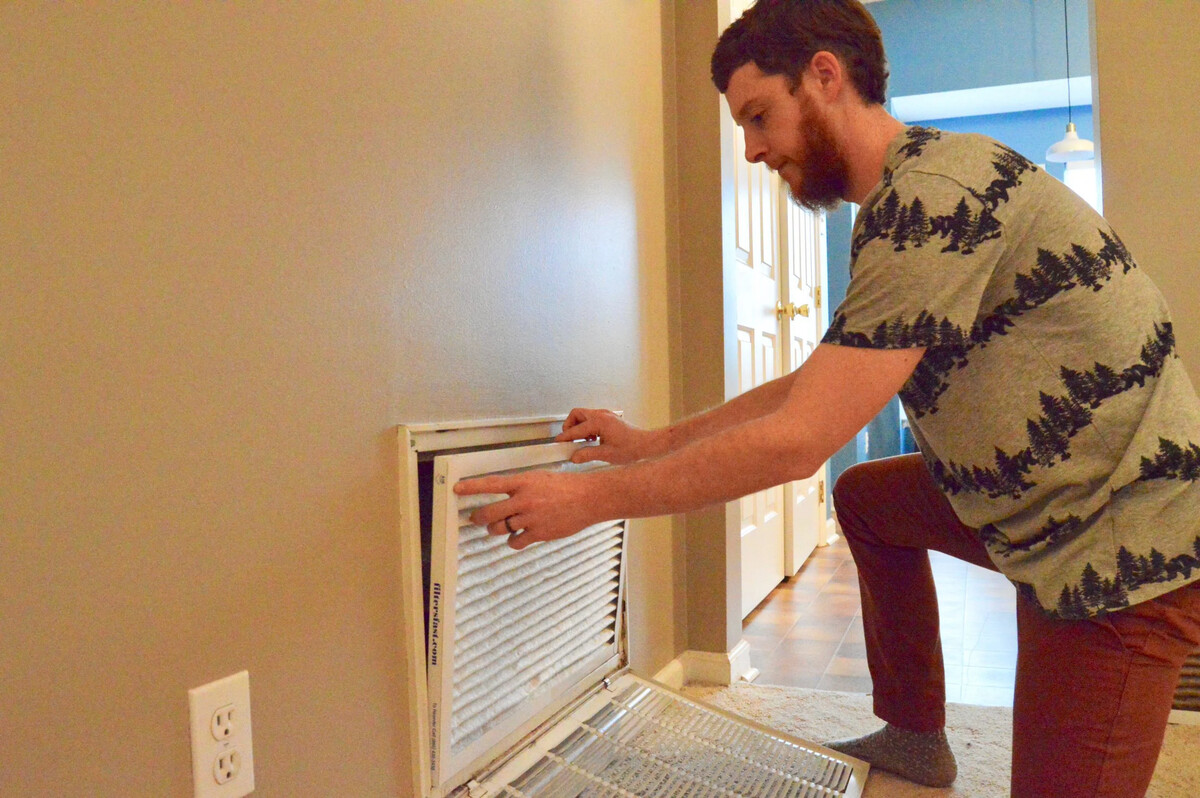Home>Home Appliances>Heating & Cooling>Which Is Cheaper: Gas Or Electric Central Heating


Heating & Cooling
Which Is Cheaper: Gas Or Electric Central Heating
Modified: February 18, 2024
Discover which is more cost-effective for your home: gas or electric central heating. Learn about the pros and cons of each option and make an informed decision. Find out more about heating and cooling solutions.
(Many of the links in this article redirect to a specific reviewed product. Your purchase of these products through affiliate links helps to generate commission for Storables.com, at no extra cost. Learn more)
Introduction
When it comes to keeping our homes warm and comfortable, the choice of heating system plays a pivotal role. One of the most common dilemmas homeowners face is deciding between gas and electric central heating. Both options have their own set of advantages and drawbacks, but one of the most significant factors influencing the decision is the cost. Understanding the comparative costs of gas and electric central heating is crucial for making an informed choice that aligns with both budgetary constraints and long-term efficiency.
In this comprehensive guide, we will delve into the cost considerations associated with gas and electric central heating systems. By examining the key cost factors, including installation expenses, energy prices, and maintenance costs, we aim to provide a clear and insightful comparison. Additionally, we will explore other essential factors that should be taken into account when evaluating the overall affordability and practicality of these heating options.
By the end of this exploration, you will have gained valuable insights into the economic aspects of gas and electric central heating, empowering you to make a well-informed decision that not only meets your heating needs but also aligns with your financial objectives. Let's embark on this journey to unravel the cost dynamics of gas and electric central heating systems, shedding light on which option may be more economical for your home.
Key Takeaways:
- Gas central heating may have higher initial installation costs, but its lower ongoing energy expenses and long-term efficiency make it a cost-effective choice for many households.
- Electric central heating offers a more environmentally friendly option, especially with renewable energy sources, despite potentially higher initial installation costs and ongoing energy expenses.
Cost of Gas Central Heating
Gas central heating systems have long been a popular choice for homeowners seeking efficient and cost-effective heating solutions. The cost of installing a gas central heating system typically involves several key components, each of which contributes to the overall expenditure.
Initial Installation Costs
The initial cost of installing a gas central heating system can vary depending on factors such as the size of the property, the type of boiler chosen, and the complexity of the installation process. The primary components of a gas central heating system include the boiler, radiators, and pipework. The cost of a high-efficiency gas boiler can range from $2,500 to $7,500, with additional expenses for installation. Radiator installation costs can vary based on the number and size of radiators required for the property, typically ranging from $800 to $4,000. The complexity of pipework installation, including gas supply lines and distribution, can further impact the overall installation cost.
Energy Costs
The ongoing operational cost of gas central heating is largely determined by the price of natural gas in the local market. Gas prices can fluctuate based on supply and demand dynamics, geopolitical factors, and seasonal variations. However, gas is generally considered a more affordable fuel source compared to electricity, making gas central heating an economically favorable option for many households. The efficiency of modern gas boilers also contributes to lower energy costs, as they can effectively convert a higher percentage of the fuel into heat for the home.
Maintenance and Repairs
While gas central heating systems are known for their reliability, periodic maintenance and potential repairs should be factored into the overall cost considerations. Routine servicing of the boiler and heating components is essential to ensure optimal performance and longevity of the system. The cost of annual maintenance can range from $100 to $300, depending on the service provider and the extent of the inspection and cleaning required. Additionally, homeowners should budget for potential repair costs, such as replacing faulty components or addressing unexpected malfunctions.
Long-Term Considerations
When evaluating the cost of gas central heating, it is important to consider the long-term benefits and potential savings associated with this heating option. The efficiency and durability of gas central heating systems can lead to lower overall heating expenses over the system's lifespan, making it a compelling choice for those seeking sustainable and cost-effective heating solutions.
In summary, the cost of gas central heating encompasses initial installation expenses, ongoing energy costs, maintenance, and long-term considerations. Understanding these cost dynamics is essential for homeowners weighing the economic feasibility of gas central heating as a heating solution for their properties.
Cost of Electric Central Heating
Electric central heating systems offer a compelling alternative to gas-based heating solutions, particularly for properties where access to natural gas may be limited or impractical. Understanding the cost implications of electric central heating is essential for homeowners considering this option.
Initial Installation Costs
The initial cost of installing an electric central heating system typically involves several key components, each contributing to the overall expenditure. The primary elements include the electric boiler, radiators, and wiring. Electric boilers are generally more affordable than their gas counterparts, with prices ranging from $500 to $2,500, depending on the size and efficiency rating. Radiator installation costs for electric central heating can vary based on the number and size of radiators required for the property, typically ranging from $600 to $3,000. The complexity of wiring and electrical panel upgrades, if necessary, can further impact the overall installation cost.
Energy Costs
One of the defining factors in the cost of electric central heating is the price of electricity. Electricity prices can vary based on factors such as regional utility rates, time-of-use pricing, and energy efficiency surcharges. While electricity is generally more expensive than natural gas per unit of energy, the efficiency of electric heating systems and the potential for renewable energy integration can influence long-term energy costs. Additionally, advancements in electric heating technology, such as heat pumps and infrared heating, offer energy-efficient alternatives that can contribute to overall cost savings.
Maintenance and Repairs
Electric central heating systems are often lauded for their low maintenance requirements. Unlike gas boilers, electric boilers have fewer moving parts and do not require combustion, resulting in reduced maintenance needs. Routine inspections and cleaning of radiators and heating controls are typically the primary maintenance tasks for electric central heating systems. The cost of annual maintenance for electric heating systems can range from $50 to $200, depending on the complexity of the system and the service provider. While the likelihood of major repairs is lower compared to gas systems, homeowners should still budget for potential electrical component replacements and system upgrades over time.
Long-Term Considerations
When evaluating the cost of electric central heating, it is important to consider the long-term benefits and potential savings associated with this heating option. The efficiency of electric heating systems, especially those incorporating renewable energy sources, can contribute to reduced environmental impact and long-term energy cost stability. Additionally, the absence of combustion in electric heating systems eliminates the need for venting and flue maintenance, further streamlining the overall cost of ownership.
In summary, the cost of electric central heating encompasses initial installation expenses, ongoing energy costs, maintenance, and long-term considerations. Understanding these cost dynamics is essential for homeowners weighing the economic feasibility of electric central heating as a heating solution for their properties.
Comparison of Gas and Electric Central Heating Costs
When comparing the costs of gas and electric central heating, several key factors come into play, influencing the overall affordability and long-term financial implications for homeowners.
Initial Installation Expenses
Gas central heating systems typically entail higher initial installation costs compared to electric systems. The need for a gas boiler, radiators, and extensive pipework contributes to the upfront expenditure. In contrast, electric central heating systems, comprising electric boilers and radiators, generally involve lower installation expenses. However, the specific requirements of the property and the complexity of the installation process can influence these costs.
Read more: Which Is Better Gas Or Electric Cooktop
Ongoing Energy Costs
The disparity in energy costs between gas and electricity is a crucial consideration. While natural gas is often more affordable per unit of energy compared to electricity, the efficiency of electric heating systems and potential advancements in energy pricing models can impact long-term energy expenses. Additionally, the availability of renewable energy sources for electric heating can further influence ongoing energy costs, potentially offering a more sustainable and cost-effective heating solution.
Maintenance and Repairs
Gas central heating systems necessitate regular maintenance to ensure optimal performance and safety. The cost of annual servicing and potential repairs should be factored into the overall cost of ownership. On the other hand, electric central heating systems generally require less maintenance due to the absence of combustion components. While the maintenance costs for electric systems are typically lower, homeowners should still consider potential repair expenses and system upgrades over time.
Long-Term Considerations
When evaluating the long-term cost implications, both gas and electric central heating systems present distinct advantages. Gas systems, known for their efficiency and durability, may offer lower overall heating expenses over the system's lifespan. Conversely, electric systems, especially those integrating renewable energy sources, can provide long-term energy cost stability and environmental benefits.
In summary, the comparison of gas and electric central heating costs involves a multifaceted analysis of installation expenses, ongoing energy costs, maintenance, and long-term considerations. By carefully assessing these factors, homeowners can make informed decisions aligned with their budgetary constraints and heating requirements.
Other Factors to Consider
In addition to the direct cost implications, several other factors play a crucial role in the decision-making process when choosing between gas and electric central heating systems. These considerations encompass environmental impact, system efficiency, safety, and the availability of energy sources.
Read more: What Is Central Heating In An Apartment
Environmental Impact
The environmental footprint of heating systems is an increasingly significant consideration for homeowners. Gas central heating systems, while efficient in operation, produce carbon emissions during the combustion process. These emissions contribute to air pollution and are a significant factor in climate change. In contrast, electric central heating systems, particularly those powered by renewable energy sources such as solar or wind, offer a more environmentally friendly alternative. By leveraging clean energy, electric heating systems can significantly reduce carbon emissions, contributing to a greener and more sustainable home heating solution.
System Efficiency
The efficiency of a heating system directly impacts its operational costs and overall effectiveness in maintaining a comfortable indoor environment. Gas central heating systems are known for their high efficiency, with modern condensing boilers maximizing the use of natural gas to produce heat. This efficiency translates to lower energy consumption and reduced operating costs over time. Electric central heating systems, especially those incorporating advanced technologies such as heat pumps, can also achieve high levels of efficiency. By harnessing the principles of heat transfer and energy conservation, electric heating systems can provide effective heating while minimizing energy waste.
Safety Considerations
Safety is paramount when evaluating heating options for residential properties. Gas central heating systems require proper ventilation and adherence to safety protocols to prevent the risk of gas leaks and carbon monoxide exposure. Regular maintenance and vigilant monitoring of gas appliances are essential to ensure the safety of occupants. Electric central heating systems, on the other hand, eliminate the risks associated with gas combustion, reducing the potential for gas-related accidents. However, electrical safety measures, including proper wiring and circuit protection, are critical for the safe operation of electric heating systems.
Energy Source Availability
The availability and accessibility of energy sources in a specific location can significantly influence the choice between gas and electric central heating. While natural gas infrastructure may be prevalent in certain regions, properties in remote or rural areas may have limited access to gas supply networks. In such cases, electric central heating systems offer a viable alternative, leveraging the widespread availability of electricity. Additionally, the growing emphasis on decentralized energy generation, including residential solar panels and wind turbines, enhances the feasibility of electric heating solutions in diverse geographical settings.
By considering these additional factors alongside the direct cost comparisons, homeowners can gain a comprehensive understanding of the broader implications associated with gas and electric central heating systems. This holistic approach enables informed decision-making, aligning heating choices with environmental objectives, safety considerations, and energy source availability.
Read more: Why Is Central Heating Not Working
Conclusion
In conclusion, the decision between gas and electric central heating systems involves a multifaceted evaluation of cost, environmental impact, efficiency, safety, and energy source availability. Both options present distinct advantages and considerations, making it essential for homeowners to weigh the factors that align with their specific needs and priorities.
From a cost perspective, gas central heating systems typically entail higher initial installation expenses due to the need for boilers, radiators, and extensive pipework. However, the ongoing energy costs of natural gas are generally lower than electricity, making gas central heating an economically favorable choice for many households. Additionally, the efficiency and durability of modern gas boilers contribute to long-term cost savings, further enhancing the appeal of this heating option.
On the other hand, electric central heating systems offer a more environmentally friendly alternative, particularly when powered by renewable energy sources. While the initial installation costs are often lower than gas systems, the ongoing energy expenses can be higher. However, advancements in electric heating technology, such as heat pumps and infrared heating, provide energy-efficient alternatives that can contribute to overall cost savings and environmental sustainability.
When considering the broader implications, including environmental impact, system efficiency, safety, and energy source availability, homeowners can make informed decisions that align with their values and long-term objectives. Gas central heating systems, known for their high efficiency and reliability, may be preferred in areas with established natural gas infrastructure and a focus on cost-effective heating solutions. Conversely, electric central heating systems, especially those integrating renewable energy sources, offer a greener and potentially more sustainable option for properties seeking to minimize carbon emissions and environmental impact.
Ultimately, the choice between gas and electric central heating systems is a personalized decision that hinges on a thorough assessment of cost dynamics, environmental considerations, safety requirements, and energy source accessibility. By carefully evaluating these factors, homeowners can select the heating solution that not only meets their immediate heating needs but also aligns with their long-term financial objectives and environmental stewardship.
In the ever-evolving landscape of heating technologies and energy policies, the decision between gas and electric central heating systems represents a pivotal opportunity for homeowners to contribute to sustainable living while ensuring comfort and affordability in their homes.
Frequently Asked Questions about Which Is Cheaper: Gas Or Electric Central Heating
Was this page helpful?
At Storables.com, we guarantee accurate and reliable information. Our content, validated by Expert Board Contributors, is crafted following stringent Editorial Policies. We're committed to providing you with well-researched, expert-backed insights for all your informational needs.











0 thoughts on “Which Is Cheaper: Gas Or Electric Central Heating”